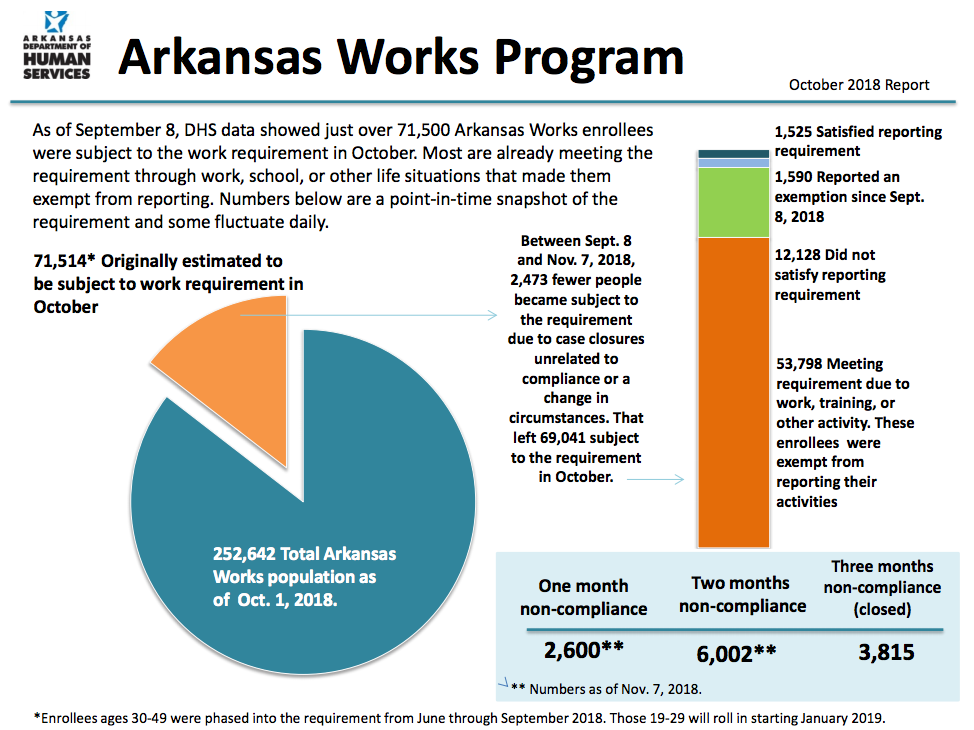Blog
-
CMS Unveils Latest National Health Expenditures Estimates
On December 6, the Office of the Actuary at the Centers for Medicare and Medicaid Services (CMS) unveiled its latest National Health Expenditures (NHE) estimates for 2017. There were several noteworthy findings related to the Medicaid program: Growth in overall Medicaid spending slowed to 2.9 percent in 2017, down from 4.2 percent in 2016. According…
-
No Changes to Child Core Set of Health Care Quality Measures in Medicaid and CHIP for 2019
CMS has announced that the Child Core Set of Quality Measures in Medicaid and CHIP will remain the same for 2019. No new measures will be introduced, nor will any 2018 measures be retired. CMS is required to review the core measures annually, and does so in partnership with the National Quality Forum (NQF) and…
-
CMS Posts New Medicaid and CHIP Application Processing Time Report
Say Ahhh! readers know that I have long been frustrated at the delay in releasing state-level performance indicator data in Medicaid and CHIP. While CMS has posted enrollment and application data for some time, data on the remaining performance indicators – which were announced in September 2013 (that’s more than five years ago!) – have…
-
The Importance of Medicaid to Kentucky’s Rural Areas is Eye Popping
In 2017, we embarked on a new project with the Rural Health Research Program at the University of North Carolina Sheps Center for Health Services Research to examine the role of Medicaid in rural areas and small towns. In our first report, Medicaid is a Lifeline for Small Towns and Rural Communities, we highlighted the…
-
Proposed Changes to Medicaid Managed Care Rule Will Reduce Access to Providers
One year ago, CMS Administrator Seema Verma gave a major policy address to state Medicaid directors in which she promised to “rollback burdensome regulations that the federal government has imposed on states.” She specifically targeted two, both of which were issued by the prior administration: the Access Rule (November 2015), and the Managed Care Rule…
-
Military Kids Need Medicaid Too
By: LCDR Anthony P. Putney, USN (ret.) — Father and caregiver to Lily I’m a veteran of the United States Navy, a nurse and parent to four children along with my wife, Carie. I work hard today to provide for my family, and I spent 23 years in active service to the nation. Knowing all this,…
-
Another Place for Medicaid Attention: Young Children’s Social Emotional Development
Early childhood mental health is not as widely understood and does not look the same as mental health challenges for older children or adults. But there’s good news: effective, evidence-informed, and promising interventions that support infant and toddlers’ mental health are available. That’s where Medicaid can help. Our latest paper, Using Medicaid to Ensure the…
-
New Report Shows Progress on Children’s Health Coverage Reversed Course
[Editor’s Note: For the most recent Georgetown University Center for Children and Families report on children’s health coverage and an interactive version of the report with state-by-state data, click here.] For the past eight years, CCF has published a report tracking health coverage rates for children across the country. This year, for the first time…
-
Midterm Elections Improve Prospects for Medicaid Expansion in North Carolina
The loss of Republican supermajorities in the North Carolina House and Senate in the recent midterms was the first sign of an improving climate for expanding Medicaid in the Tarheel state. Now when Democratic Governor Roy Cooper exercises his veto power, Democrats in the legislature can block legislation – including the annual state budget bill…
-
Surprise! CMS Approves Kentucky Work Requirement Waiver Again
Yesterday, CMS reapproved the Kentucky work requirement waiver. The reapproval comes less than two weeks after Congress’s Medicaid and CHIP Payment and Access Commission (MACPAC) wrote a letter to the Secretary of HHS asking for a pause in disenrollments resulting from the Arkansas work requirement waiver, less than a week after Arkansas announced that over…
-
Louisiana Medicaid Audit Report Misses the Mark
A recent legislative audit of the adult Medicaid expansion in Louisiana compares apples and oranges to arrive at a conclusion that millions of dollars were paid on behalf of Medicaid enrollees who did not qualify. But is it accurate to characterize these individuals as ineligible? No, not when you consider the flexibility states have in…
-
Arkansas Data are Clear – Trump’s Medicaid Policy is a Dangerous Failure
The primary focus of the Trump Administration’s approach to Medicaid has been to encourage states to impose work and “community engagement” requirements on adults in Medicaid through Section 1115 Medicaid waivers. As regular readers of SayAhhh! know, Arkansas is the first state in the nation to impose these new rules on its Medicaid expansion policy.…
-
Medicaid Transformation in NC: Three Priorities to Watch
By Ciara Zachary Seventy percent of the people enrolled in Medicaid and NC Health Choice in North Carolina are children. So as the state’s Medicaid transformation process continues to meet major milestones, NC Child is closely monitoring this complex undertaking for its impacts on children. Here’s a brief update on where we are in the…
-
New Policy Brief asks: “Why are Tennessee moms and babies dying at such a high rate?”
Tennessee Justice Center’s recent policy brief focuses on rising rates of infant and maternal mortality in Tennessee. When I saw the state’s dismal outcomes in the 2018 America’s Health Rankings Health of Women and Children report, I immediately wanted to learn why moms and babies were dying at higher and higher rates in Tennessee. According…
-
Actual State Budget Impacts in Five States that Expanded Medicaid
Michigan, Montana, Louisiana, Colorado and Virginia have all expanded Medicaid. In each of these states, local analysis has shown expanding Medicaid has either been a positive for the state’s general fund revenues or has not resulted in any additional cost to the state. The reason is a combination of substantial state savings from Medicaid now…
-
Medicaid at the 2018 Ballot Box: What to Look For (Part 1)
Next Tuesday (as usual) I will be staying up late to see what happens in the midterm elections. But for the first time in more than twenty years of working on Medicaid there will be so much to watch out for that will directly affect Medicaid! Today I will start with the 17 states that…
-
New Guidance Reinterprets Section 1332 Waivers
On October 22, the Trump Administration issued new guidance related to section 1332 state waivers of certain provisions of the Affordable Care Act. The guidance eviscerates the existing statutory requirements for affordability, comprehensiveness and coverage that section 1332 waivers must satisfy to receive federal approval. As a result, as other analysts have pointed out (here…
-
Trump Administration Hands States Another Tool for Dismantling Preexisting Condition Protections
Last week, the Trump administration issued long-anticipated guidance regarding the Affordable Care Act’s Section 1332 “innovation waiver” program. The release rebrands and creatively reimagines the ACA program (they’re now “State Relief and Empowerment” waivers), breaking dramatically with past policy and, arguably, with the statute it purports to interpret. In the administration’s view, the ACA permits states to…
-
Advocates Have a Key Role to Play Encouraging Early Childhood Sector to Leverage Medicaid to Meet Children’s Developmental Needs
Medicaid and early childhood care providers, including Head Start, child care centers, and home visiting programs, serve many of the same low-income children, yet the two systems rarely collaborate to improve overall population health. Reaching vulnerable children in their early years of physical, social and emotional development is essential to setting them on a path…
-
More Rural Hospitals Closing in States Refusing Medicaid Coverage Expansion
The University of North Carolina’s Rural Health Research Program tracks closures of rural hospitals across the country. From 2010 to the present there are six states with five or more rural hospital closures. Texas leads with a stunning 15 rural hospitals closed, followed closely by Tennessee (9 rural hospitals closed) and Georgia (7 rural hospitals…




















